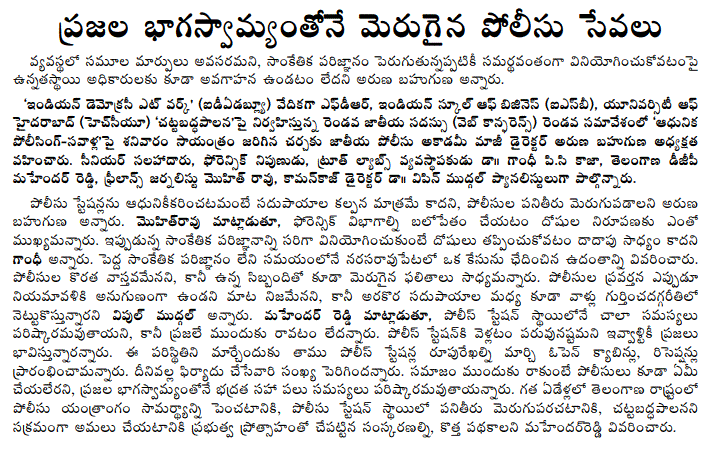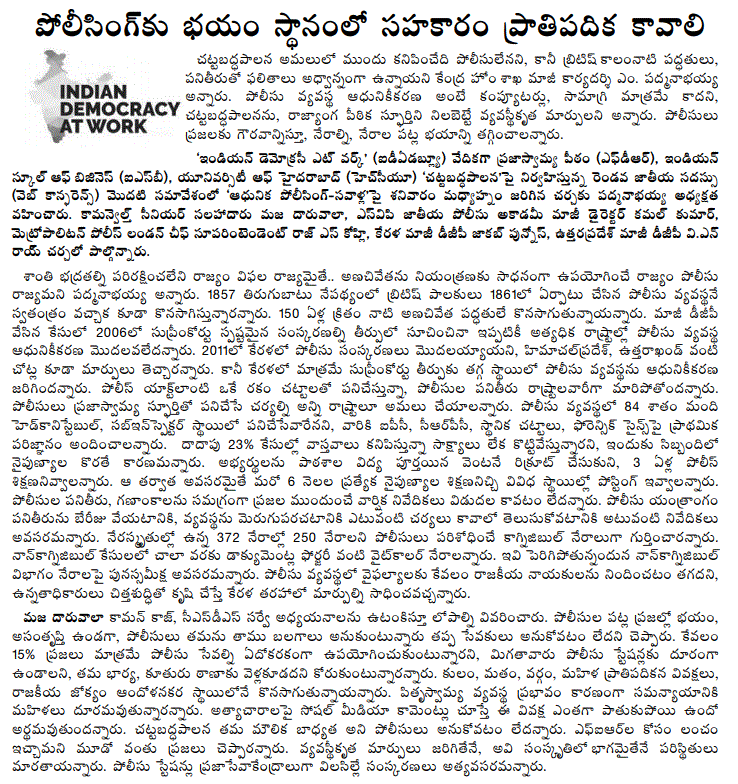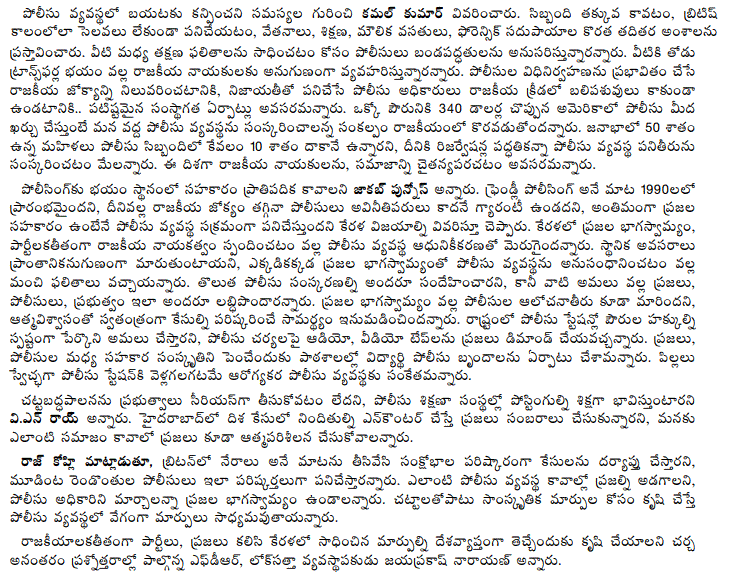ఆత్మనిర్భర భారత్ కి చట్టబద్ధపాలన ఎంతో అవసరం.. ఈజ్ ఆఫ్ జస్టిస్ కు చట్టాలను సంస్కరించే ప్రయత్నం ప్రారంభించాం: ఐడీఎడబ్ల్యూ సదస్సులో కిషన్ రెడ్డి
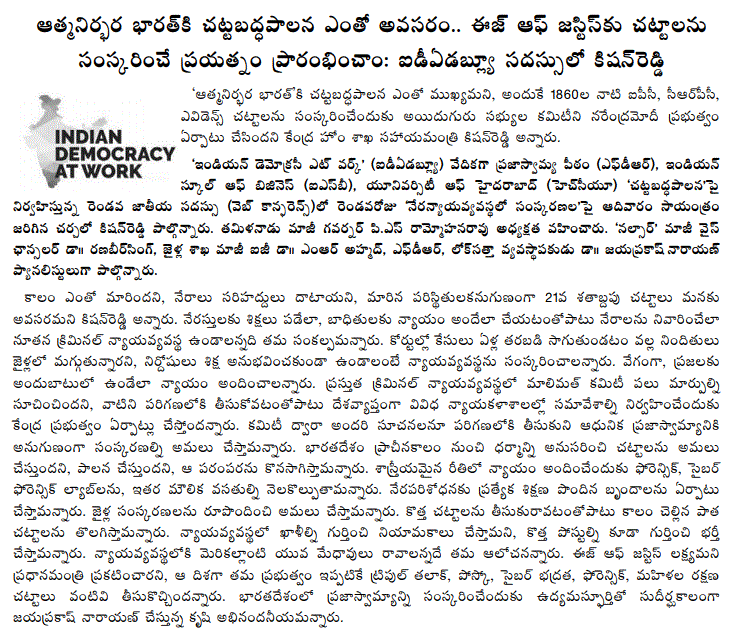
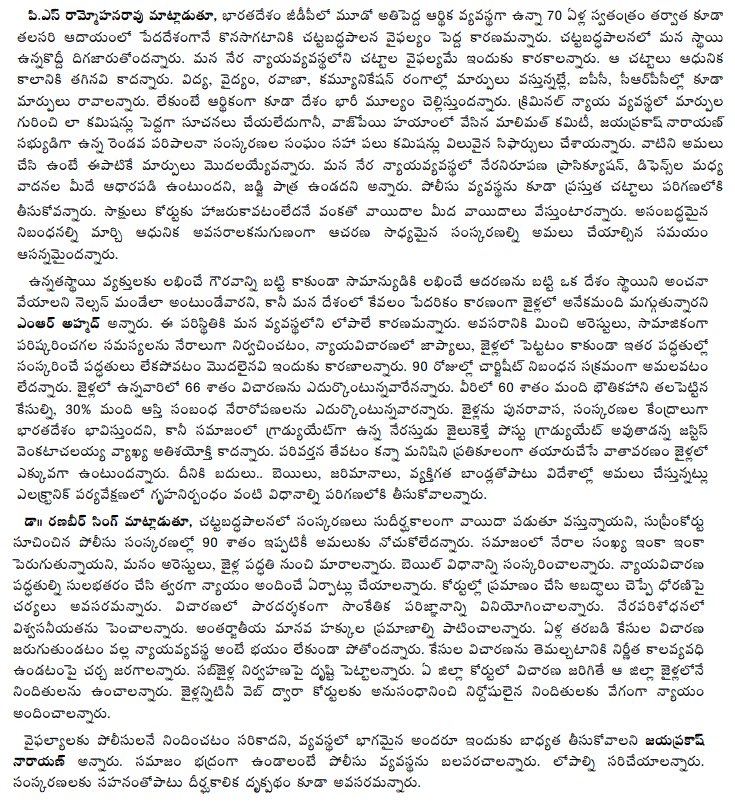


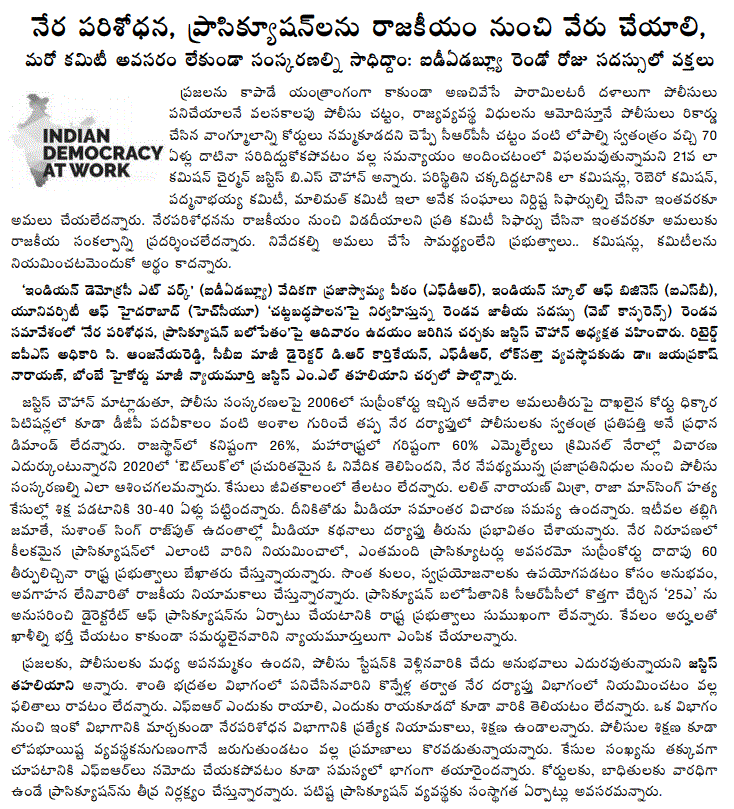
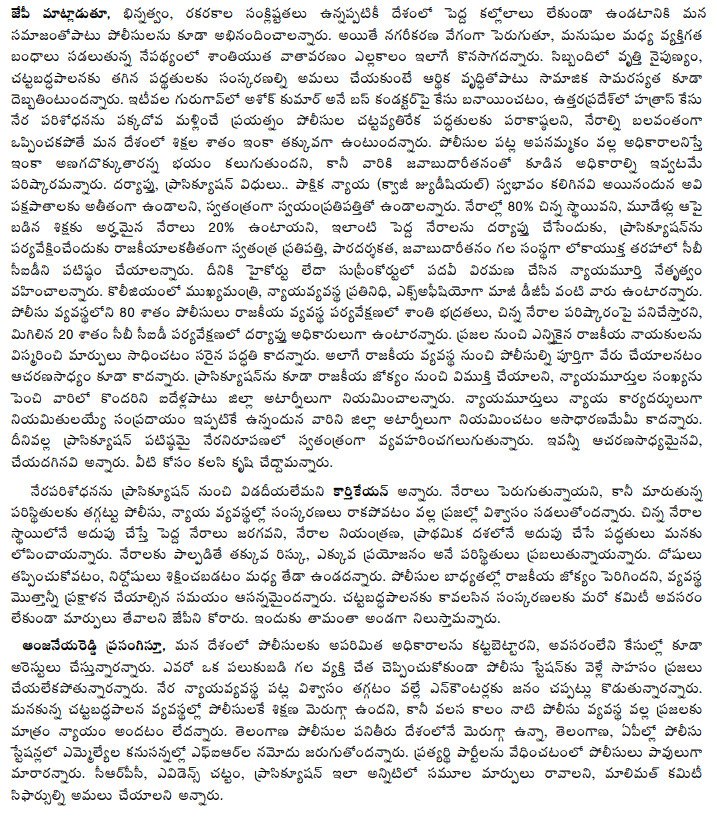
The second session of the Indian Democracy at Work Conference 2021 on Rule of Law saw a distinguished panel deliberate on ways to strengthen investigation.Justice B.S. Chauhan, Chairman of 21st Law Commission, was the chair for the session, with him the panelists were Shri. C. Anjaneya Reddy, IPS (IPS), Shri D.R. Karthikeyan Former Director of Central Bureau of Investigation, Dr. Jayaprakash Narayan, General Secretary of Foundation for Democratic Reforms and Justice M.L. Tahaliyani former Judge of Bombay High Court.
Justice BS Chauhan: Justice Chauhan started off with explaining that the foundation of criminal justice system starts with suspicion raised by the investigators. He expressed displeasure that cases are not being decided even in the lifetime of the plaintiffs. Additionally, most of the political people do not have the willpower to accept any of the recommendations made by the Judiciary and that most inexperienced people are being appointed as public prosecutors due to political pressures. Justice Chauhan expressed that Section 25A is not being followed by the states where in the State Government may establish a Directorate of Prosecution consisting of a Director of Prosecution and as many Deputy Directors of Prosecution as it thinks fit to strengthen prosecution.Justice Tahiliyani stated that people are having bad experiences when they visit police station, so most do not want to go there to launch a complaint.Trust deficit is there in both police department and judiciary. Justice Tahiliyani explained that no separate cadre of police exist to deal with investigations, and this must be addressed urgently. Police needs to be trained on investigation before they assume their jobs and that Investigation shall be separated from law and order.
Dr. Jayaprakash Narayana stated that police should be empowered and should be held accountable. He said that conviction rate in India is very less and that trial process should be expedited. He also emphasized the need for non-partisan, autonomous, professional, accountable, and transparent independent crime investigation wing is needed. Dr. JP also suggested to increase the number of judges and appoint judges as District attorneys for a period of 5 years and make prosecution independent from political control. Shri. DR Karthikeyan stated that an unjust acquittal is as bad as an unjust conviction and unless we correct the deficiencies in the system the lawlessness of the country will not go.Politicization of police is also a major problem.Shri. Anjaneya Reddy, IPS explained that crime is investigated at different levels like district level, state level, and CB-CID level. The Investigation process should be facilitated over multiple jurisdictions without obstacle and the laws should be changed accordingly. He emphasized that the laws governing us now are of the colonial era and that the changing times demand robust laws. The laws governing now are not designed in a democratic system but for a colony. In addition, Shri Anjaneya Reddy explained that people do not go to police stations because police of apprehensions. Police are given uninhibited powers of arrest, which is misused frequently. Also, encounters happen because people have lost faith in the criminal justice system and that strengthening criminal justice system will build public trust and promote over all development.
Shri. Kishan Reddy, Minister of State for Home addressed Rule of Law Conference Organised by Foundation for Democratic Reforms. The session on Criminal Procedure Reforms was Chaired by Shri. PS Rammohan Rao IPS, former governor of Tamilnadu, Shri Jayaprakash Narayana Retd IAS, Shri Ranvir Singh, Former Vice Chancellor NALSAR, and Shri. MR Ahmad former Prisons IG. Shri. Kishan Reddy expresses concern over Rule of Law in the country and conveyed his wholehearted support to the conference. He also stated that BJP government under leadership of Shri Narendra Modi is commited to Rule of Law and Reforms to the CrPC and IPC. Shri. Rammohan Rao explained the importance of Rule of Law not just for the health of the society, but also for the economic growth and there by reduction of poverty and increase in employment.
